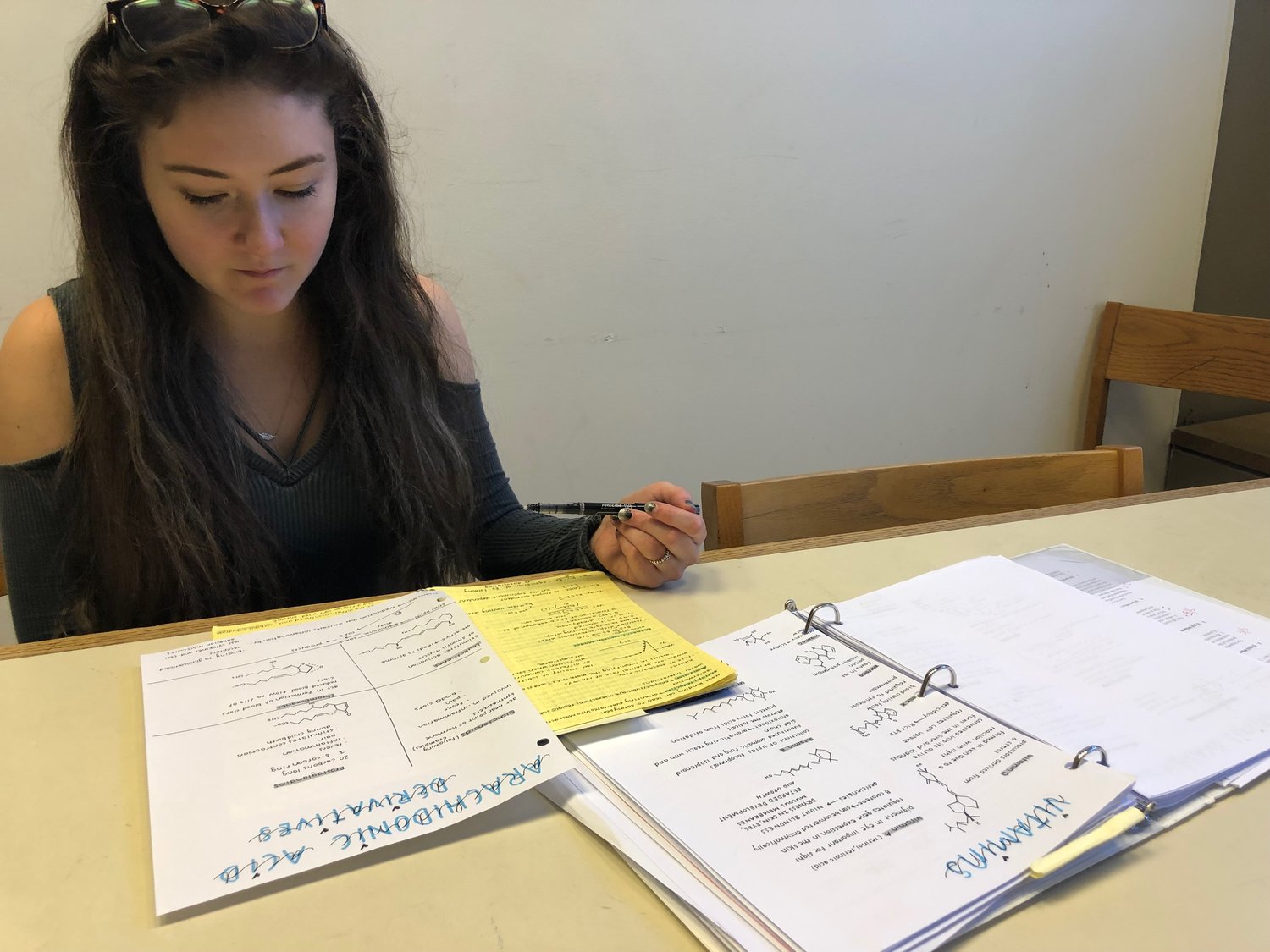Schoolwork and social media take toll on mental health among college students
College is a period of adjustment. With many students moving away from home for the first time, having to make new friends and dealing with a heavy workload on top of that, it's not surprising that many students deal with mental health problems such as anxiety and depression.
“In our generation, kids are stressed to do well and be successful and they don’t really give themselves a break. I think it’s just much more mentally taxing on people nowadays,” said Rachel Rea, a junior community health major at Hofstra University. “We just live in such a stressed-out society as opposed to decades ago, and I think it’s honestly just getting worse. That’s why kid and teen mental health rates are going up.”
Every year, the number of college students with mental health problems — particularly anxiety and depression — has been increasing. The Association for University and College Counseling Center Directors released the results to a survey in 2012 that found that anxiety was the main concern for college students, with 41.6 percent of college students reporting anxiety as a top concern. The same study in 2017 found anxiety affects 48.2 percent of college students, and stress impacts 39.1 percent of students. In five years, the percentage of students dealing with anxiety rose 6.6 percent.
Meanwhile, a 2018 study by Penn State’s Center for Collegiate Mental Health found that despite 61.8 percent of students studied sharing concerns about anxiety, “anxiety did not increase in prevalence for the first time in four years, whereas depression continued to increase.”
Dr. Dodie Gillett, staff psychologist and asistant director of internship education and training at Hofstra’s Student Counseling Services, said “stress related to academics or personal issues” was the main reason students visit the center. “These stresses result in symptoms of anxiety and depression.”
Stress and anxiety can come from a number of areas: For some students, it stems from schoolwork. An anonymous junior in the pre-physician assistant studies program discussed how academic pressure has led her to experience more stress since coming to Hofstra.
“I have GPA requirements that I have had to keep,” she said. “I need to maintain these GPA requirements or I lose my spot [in the program] ... So it’s definitely been stressful, to say the least. I didn’t [have stress before coming to college]. I had always been a very good student in high school, and no matter what had been thrown at me, I had been able to handle it without a problem. Before college, I was used to getting straight A’s — with effort — but I always knew that I would end up getting them. It was kind of a transition when I got to college and realized that your best effort might not always result in an A.”
While some students similar to this student suffer from test anxiety and general anxiety disorder, a relatively newer form of anxiety is impacting college students — anxiety from social media.
“I kind of gave up the normal college experience to study, so I don’t always like having social media active because I’ll start comparing me sitting there studying versus people going out on a Saturday night and I wonder if that is the best option for me,” she said. “I don’t ever want to doubt the decision that I made because I know in the long run it’s going be a good one.”
Social media is a place where people often portray the best versions of themselves — versions that tend to not be accurate depictions of their real lives. For this reason, spending too much time on social media and the internet can lead to more problems with anxiety, depression, ADHD and other similar mental health disorders.
“I definitely think people portray a different version of themselves [online],” the anonymous student said. “I think it’s this fake, polished, ‘Look at me having fun’ type of portrayal, and that makes it even worse because I know that that’s not their real life, and I know that their life is probably very similar to mine. But in this very staged moment, it looks so much better. So, the lack of realism with social media causes me to kind of want to take a break from it.”
Some students do take breaks from social media as a way to help their mental health. Rea has deleted social media semi-permanently as a way to help her mental health.
“I deleted Snapchat a while ago, and I just deleted Instagram,” Rea said. “I honestly ... I don’t miss it at all. I don’t miss seeing people that I used to know post stuff, it just doesn’t matter.”
Meanwhile, the anonymous student in the pre-PA program also deletes social media from time to time as a way to deal with stress related to school.
“I predominantly [delete social media] to prepare for tests because I’m one of those people who kind of always has their phone right in front of them,” the anonymous student said. “I’ve found myself wasting a lot of time, opening up a social media app and scrolling before I go back to work. Also I delete it when I feel very upset by the other college lifestyles that are being led that I can’t pursue because I chose the major that I did.”

 39.0°,
Fair
39.0°,
Fair 










